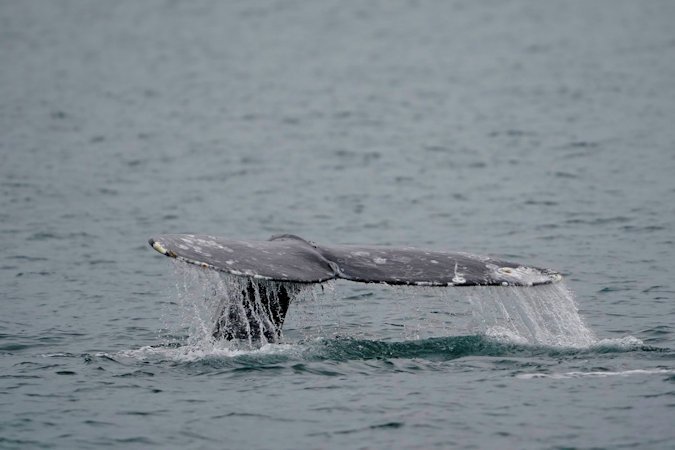West Coast whale population recovers 5 years after hundreds washed up ashore

SEATTLE (AP) — Federal researchers indicate the gray whale population along the West Coast is showing signs of recovery five years after hundreds washed up dead on beaches from Alaska to Mexico.
The increase in population numbers comes after the National Oceanic and Atmospheric Association determined in November that the “unusual mortality event” that began in 2019 has ended.
“It’s nice to be able to report some good news the last couple of years,” Aimee Lang, a research biologist with NOAA’s Southwest Fisheries Science Center, told The Seattle Times.
The agency has estimated the total number of eastern north Pacific Gray whales to be between 17,400 to 21,300, an increase from an estimated 13,200 to 15,960 whales last year.
The population began to decline after numbering about 27,000 whales in 2016. The mortality event hits its peak between Dec. 17, 2018, and Dec. 31, 2020, the agency said. It involved 690 dead gray whales that washed ashore from Alaska to Mexico. Of those, 347 were in the U.S., 316 in Mexico and 27 in Canada.
In an average year, about 35 whales washed up dead in the U.S. Five years ago, those whales washed up on coastlines in California, Oregon, Washington state and Alaska.
Every year in late September, whales migrate 10,000 miles (16,093 km) from feeding grounds in the Arctic to birth their calves along Mexico’s Baja Peninsula.
NOAA researchers said the mortality event was due to ecosystem changes in the northern Bering and Chukchi seas off northern Alaska, which changed access to and quality of prey.
“These changes contributed to the poor nutritional condition observed in live whales in the wintering areas of Mexico and dead stranded gray whales in all three countries,” NOAA said. “This malnutrition led to increased mortality during the whales’ annual northward migration (from Mexico to Alaska) and decreased production of calves. This resulted in an overall decline in population abundance.”
The eastern North Pacific gray whales were removed from the endangered species list in 1994, after recovering from the whaling era.